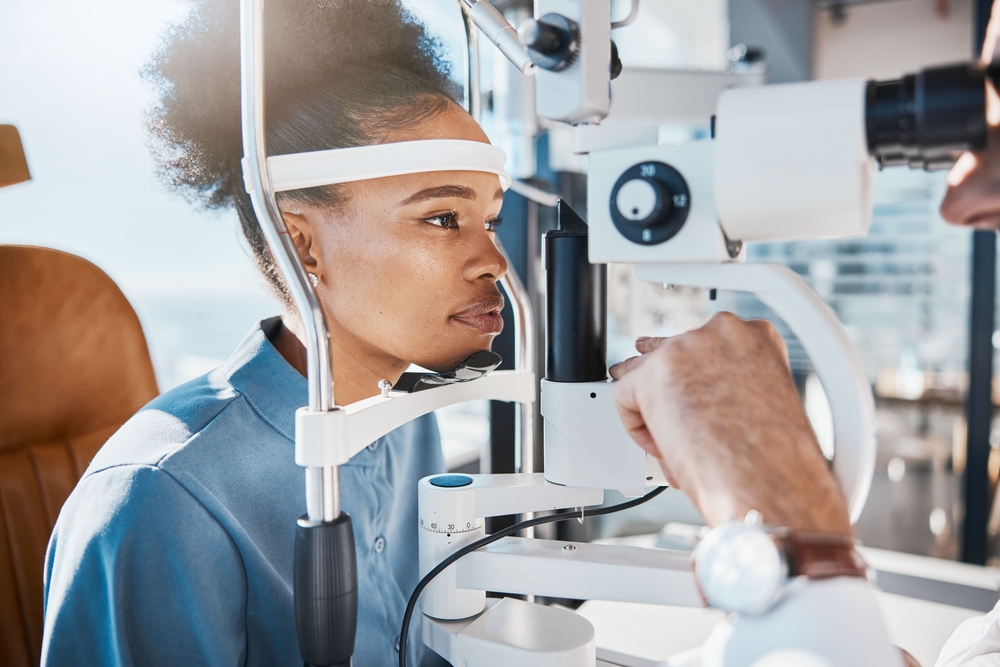
Updated: October 07, 2025
If you wear glasses or contact lenses, you’ve probably thought about LASIK at least once. Maybe you dismissed the idea, thinking you wouldn’t qualify, or perhaps you’re simply not sure what makes someone a good candidate. The truth is, many adults learn they are good candidates after a comprehensive exam.
Keep reading to learn seven signs you might be a great candidate for LASIK!

One of the most important factors in determining LASIK candidacy is prescription stability. If your glasses or contact lens prescription has remained unchanged for at least 12 months, this is an excellent sign that you might be a candidate for LASIK surgery.
Why does stability matter? LASIK works by permanently reshaping your cornea to correct your vision. If your prescription is still changing, the correction might not provide lasting results. Most eye care professionals recommend waiting until your vision has stabilized before considering the procedure.
Generally, vision stability occurs after age 18, when the eyes have finished developing. However, some people may need to wait longer if their prescription continues to change into their twenties or beyond.
Age plays a significant role in LASIK candidacy. The ideal age range is typically between 18 and 60 years old. Here’s why:
Minimum age of 18: This is when most people’s eyes have finished developing and prescriptions tend to stabilize. Before this age, the eyes are still changing, making LASIK results unpredictable.
Upper age considerations: While there’s no strict upper age limit, people over 60 may start developing presbyopia (difficulty focusing on close objects) or cataracts, which might make other procedures more suitable than LASIK.
That said, age alone doesn’t disqualify you. Your eye doctor will evaluate your individual situation to determine if LASIK is appropriate, regardless of your age.

Good overall eye health is crucial for LASIK success. During your consultation, your surgeon will conduct a comprehensive eye exam to ensure your eyes are healthy enough for the procedure.
Conditions that might affect LASIK candidacy include:
If you have any of these conditions, it doesn’t necessarily mean you can’t have LASIK, but your surgeon will need to evaluate whether the procedure is safe and effective for your specific situation. Some conditions can be treated before LASIK, while others might make alternative procedures more suitable.
LASIK can effectively treat a wide range of vision problems, including nearsightedness (myopia), farsightedness (hyperopia), and astigmatism. However, your prescription must be within the treatable ranges. While LASIK does not directly treat presbyopia (age-related reading difficulties), options like monovision LASIK may reduce dependence on reading glasses for some patients, though this approach may not be the best option for everyone.
Having realistic expectations is one of the most important aspects of being a good LASIK candidate. Understanding what LASIK can and cannot do will help ensure you’re satisfied with your results.
LASIK can:
However, LASIK may not:
During your consultation, be honest about your vision goals and lifestyle needs. Your surgeon will help you understand what results you can realistically expect based on your specific situation.
While LASIK primarily involves your eyes, your overall health plays a role in candidacy and healing. Certain medical conditions can affect your ability to heal properly after surgery.
Conditions that might impact LASIK candidacy include:
If you have any chronic health conditions, discuss them openly with your surgeon. Many health issues don’t automatically disqualify you from LASIK, but they may require special considerations or timing adjustments.

The best LASIK candidates are often motivated by specific lifestyle or professional requirements that make glasses or contacts inconvenient or problematic.
You might be an excellent candidate if you:
For select patients with very high prescriptions or age-related near-vision changes, lens-based vision correction (refractive lens exchange) replaces the eye’s natural lens with an artificial lens. It may reduce dependence on glasses depending on the lens selected and your individual eye health; results vary and not everyone achieves glasses-free vision at all distances.
The only way to determine if you are a good candidate for LASIK is to schedule a comprehensive consultation with an experienced LASIK surgeon. During your consultation, your eye doctor will perform detailed measurements of your eyes and discuss your vision goals and expectations.
If you’re tired of the limitations that glasses and contacts place on your life, it might be time to explore whether LASIK is right for you.
Schedule your free LASIK consultation at Discover Vision Centers in Kansas City, MO, today and take the first step toward clearer vision and greater freedom.
We are closed Monday (05/25)! Urgent Care is also closed Saturday (05/23)!
We are closed Friday (07/03)!
We are closed Monday (09/07)! Urgent Care is also closed Saturday (09/05)!
We are closed Thursday (11/26) and Friday (11/27)! Urgent Care is also closed Saturday (11/28)!